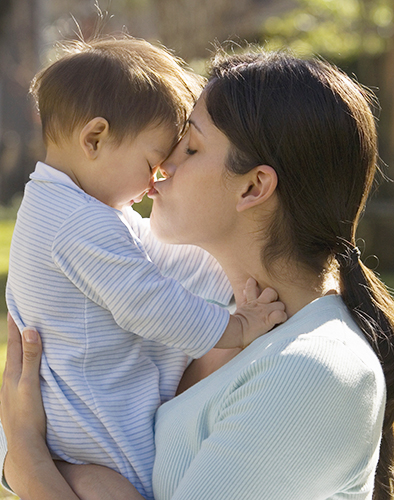Maternal and Child Health and Wellness

Helping Babies and Supporting Parents
American Indian/Alaska Native communities have long recognized the importance of community, family, and planning for the next Seven Generations. The role of elders as cultural leaders and children as the future is well understood. Tribes understand the importance of making a positive impact on the health of communities by contributing to the well-being of mothers, babies, fathers, children, and families.
The IHS has partnered with tribes, the Office of Women's Health, the American Academy of Pediatrics (AAP), the Committee on Native American Child Health (CONACH), and the American College of Obstetricians and Gynecologists (ACOG) to develop two guidelines focused on providing standards of care surrounding screening, diagnosing, and treatment of pregnant mothers and infants affected by prenatal opioid exposure.
A comprehensive approach to care for pregnant and parenting people, infants, and children starts with prenatal care and extends well into childhood. These resources will help providers improve maternal participation in early prenatal care and promote active participation in recovery strategies to improve overall outcomes for infants born with Neonatal Opioid Withdrawal Syndrome (NOWS).
AAP NOWS and ACOG Best Practice Recommendations
AAP released clinical best practice recommendations on prevention and management of neonatal opioid withdrawal syndrome, or NOWS, for IHS,[PDF - 551 KB] tribal, and urban Indian organization health care facilities.
The recommendations are a companion guide to the clinical recommendations to improve care of American Indian and Alaska Native pregnant women and women of childbearing age with opioid use disorder.[PDF - 1.1 MB]
Baby-Friendly Hospitals
Some hospitals and birth centers have taken special steps to create the best possible environment for successful breastfeeding. These hospitals, called Baby-Friendly Hospitals, offer women who deliver there the information and support they need to breastfeed their infants. Learn more about the IHS Baby-Friendly Hospital Initiative.


